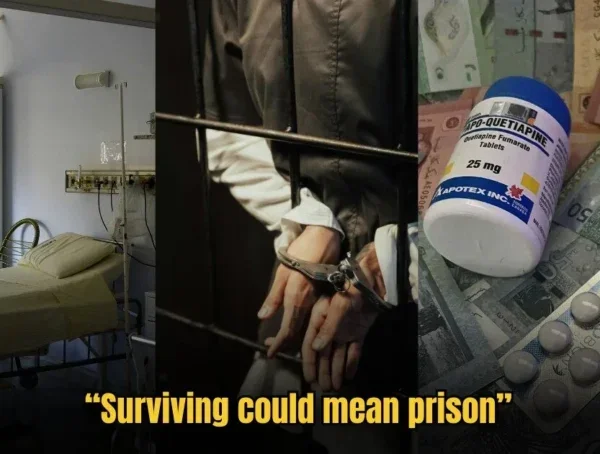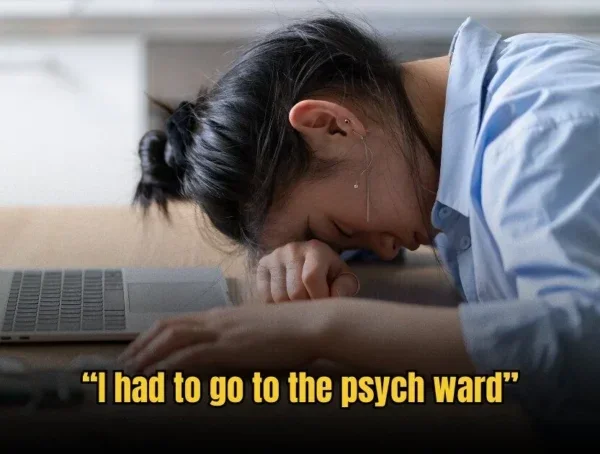Disclaimer: This is a user submission. It is edited for grammar and clarity only. The opinions expressed by the author are not necessarily affiliated with In Real Life Malaysia. Names have been changed to protect their privacy
You know, being Asian in the 21st century can be confusing.
We’re taught filial piety but not how to speak up. Physical health but not mental health.
To bury our feelings rather than to talk about them.
But why?
To be honest, it’s not just weird, it’s also wrong.
Mental illnesses are just as important and valid as physical ones. And not openly talking about it can cause more impact on a person’s mental health.
But we can change that.
Here are my thoughts on why some families won’t talk about it at home:
-
It’s a cultural thing

Let’s talk about our face-saving culture. “Saving-face” is a clichéd practice.
Most Asians still do this to “save” their reputation and credibility. But what’s that to do with mental health?
Well, the answer is shame, fear and avoidance. Our parents somehow feel that by sharing their feelings, they lose credibility in the eyes of the public.
Especially if their daughter/son is a schizophrenic or has anxiety disorders.
“Your mental illness brings shame to the family.”
Shame? Why would having an illness be shameful? Would it be shameful to admit to others that you suffer from a knee injury, or hypertension?
All of these are deeply rooted in our culture. There’s nothing much we can do about it, except turning it from a taboo topic to one that we can discuss openly.
-
They don’t know about it
Some of our parents probably did not have better access to education.
And that’s understandable.
But that shouldn’t stop them from learning about new information when it is presented to them.
As their children, we ought to be able to educate them on the symptoms of depression, or behavioural disorders like obsessive-compulsive disorder (OCD).
There just needs to be an open mind to learning about mental health. And it’s something Asian families clearly still need help with.
Reading up is a good start. Asking a therapist or medical practitioner can also be helpful for parents. Even volunteering in hospitals can be great.
Doing the research before talking about it always gives people a better understanding.
-
They don’t wanna know about it

What’s worse is that some will actively avoid learning about mental health.
It gets really disheartening too. Especially when they have resources to help them. Or a daughter/son who would educate them, but they wouldn’t want to.
Or siblings who will constantly dismiss you.
“Oh, I don’t have the time to read about all these things.”
With unsympathetic families like these, it’s no wonder some people tend to isolate themselves from the cold, cruel world.
And isolation can be viewed as the most intensive stress that a human can endure.
But don’t worry; learn to seek therapy and find reasons to be grateful being alive. You are still a survivor.
One common way of coping with such feedback is to do some meditation. It helps to release toxic energy and calms the state of mind.
-
They don’t believe it exists

Perhaps you’ve also heard them saying, “Deal with it.” “Snap out of it”. But they’re missing the point here. They should snap out of the stigma instead.
They’ll think you’re just having a bad day. Being too sensitive. Weak.
Instead of asking “How are you?”, they’re probably wondering, “What’s wrong with you?”
The former would translate as a sympathetic, concerned way of asking about us. But the latter comes across as insensitive, rude and maybe ignorant.
Maybe it’s also the problem with vocabulary.
In a common Chinese-speaking household, yik wat zing does not really translate into some medical illness that needs attention.
It’s just a word that frightens people away, or something that indicates you’re crazy.
And it hurts. It truly does.
You try your very best to let them know, just so they can understand. But they just don’t think it’s anything important.
So if they still won’t understand, just let them be. There are other ways to build the conversation outside of home.
Oh, and your mum might just get you to drink more water. Why? Because Asian mothers tend to think water cures everything anyway.
-
They see it as a failure (of poor parenting, or of their child)

Perhaps they have high hopes on you. They wanted you to become the first doctor in the family. The first son to go into university.
But everything starts to crumble when you start telling them about it. Your deteriorating mental health. And soon enough, they become shocked.
They become unable to comprehend, ultimately seeing you as a failure.
Sometimes I wonder. Wouldn’t it be a conversation that could build the parent-child bond instead?
Personally, I feel that an ideal conversation would be to always come from a place of mutual respect.
Child: I’m worried, dad. I feel as though I’m never going to be good enough.
Dad: You are always going to be good enough for you. And that’s all that matters.
Something just as simple as that. To be honest, our Western counterparts tend to do this part better.
In any case though, mental health is no less important than physical health. In fact, it’s just as valuable.
Our mental healthcare system needs more improvement. One that is not biased, and also not viewed as a superstitious belief.
It may still seem like a long way to go to end the stigma. But I have faith.
Mental health awareness is growing. And I can’t wait to see how it will evolve over the years.
Until the stigma is fully broken down, we need to practice asking for help and to prioritise mental health. It’s never shameful nor a privilege.
For more stories like this read: Depression: 5 Hidden Signs of Suffering and Your Mental Health: When You Know It’s Time to Get Professional Help.

More from Real Mental Health
“I Was Scared of Waking Up in Handcuffs,” shares Depressed M’sian on Repealed Law
In 2023, Malaysia repealed Section 309, a colonial-era law that made suicide attempts a crime. The change marked a shift …
‘Everyone Saw A Successful Student While I Was Crumbling,’ Shares 22 Year Old Student
This is a story of a 22 year old woman who shared her story as a Straight A’s student as …
5 Harmful Mental Health Myths Malaysians Still Believe
Let’s break down five of the most common myths Malaysians still believe, and why it’s time to let them go.














